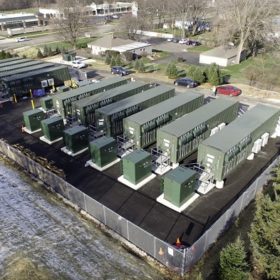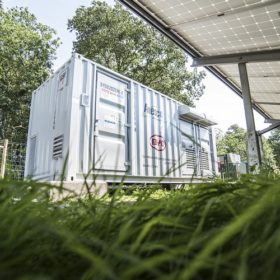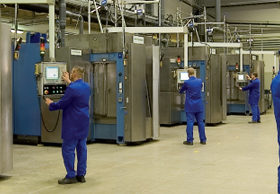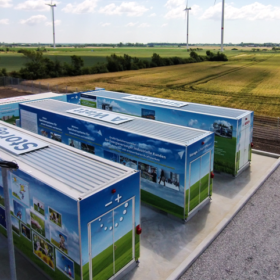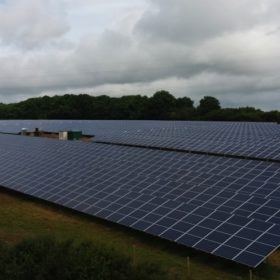London: New tool predicts cost effectiveness of electrical energy storage
As costs are driven down by the economies of scale and improvements in manufacturing and deployments, new technologies are finding their way to widespread adoption, as seen in the case of solar modules. In order to facilitate the prediction of costs and outcomes for new energy storage technologies, a team of researchers from Imperial College London has developed a tool to help policy makers and investors make informed decisions.
UK to unveil £246m battery investment strategy
Business and energy secretary Greg Clark to announce on Monday focused strategy designed to modernize the U.K.’s energy sector and bring more renewables into the fold via sustained support for storage technology.
Coal provided just 2% of UK power in H1 2017
Just five years after meeting 40% of U.K.’s electricity supply, data from Imperial College London shows that coal only met 2% of the country’s power needs in the first half of the year.
Hive Energy’s subsidy-free 40 MW UK solar plant gets approval
The British solar developer confirms that its proposed 40 MW solar farm in Hampshire, southern England, will be commissioned by early 2018 and built without the need for any form of subsidy or support from government.
U.S. university CPV system outperforms silicon by 54% in test
A single-cell concentrating photovoltaic system developed by researchers at Penn State University reportedly reached 30% efficiency, and generated 54% more energy during a two-day test than a commercial silicon solar in the same conditions.
PV Crystalox confirms closing of ingot production in the UK
The British manufacturer will now source ingots from a third-party supplier and process these into blocks in the U.K.
UK renewables firm Green Hedge receives £30m storage investment
Private equity fund Zouk Capital has invested the funds into Green Hedge Energy UK to support the development of a series of battery energy storage projects set to take shape over the next 12 months.
Aldi UK pledges rooftop PV expansion
The German supermarket chain aims to install 96,000 solar panels atop its stores and distribution centers across the U.K. by the end of the year.
PV’s popularity higher than ever as UK celebrates 4th Solar Independence Day
The event organized by the Solar Trade Association offers reminder that solar PV has been a transformative energy source in the past few years, and is backed by 86% of the population.
UK: ministers admit country ‘has work to do’ to meet 2020 goal of 15% renewable energy
Figures released by U.K. government ahead of the G20 Summit show U.K. was at 8.9% renewable energy penetration at the end of 2016. EU target for 2020 is 15%, and Conservative ministers admit there is still work to do.
